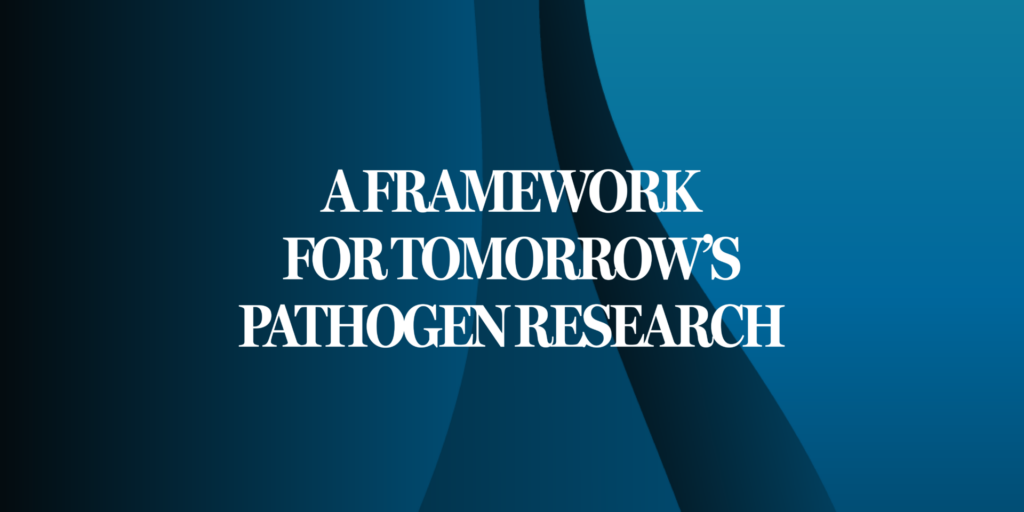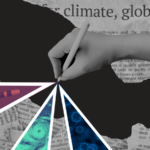International experts create framework for safer pathogen research
By Sarah Starkey | February 28, 2024

NEW YORK, NY – February 28, 2024 – A new report was released by the Bulletin of the Atomic Scientists’ Independent Task Force on Research with Pandemic Risks that studied the benefits and risks of a subset of research that could plausibly source a large outbreak, or even a pandemic. Formed in the wake of the COVID-19 pandemic, the task force is composed of experts with backgrounds in biosafety, biosecurity, epidemiology, ethics, governance, virology and other areas who endorse the report.
The findings and recommendations of the new report, titled A Framework For Tomorrow’s Pathogen Research, was presented at the United Nations Headquarters in New York City.
David Relman, MD, Task Force Chair, Thomas C. and Joan M. Merigan professor of Medicine, professor of Microbiology & Immunology, and senior fellow at the Center for International Security and Cooperation at Stanford University, said: “The COVID-19 pandemic demonstrated the highly consequential and yet, uneven global impact of a single virus. In the coming years, humanity’s encounters with deadly viruses may become even more frequent, whether through natural, accidental, or deliberate mechanisms. This important work is a blueprint for the design and oversight of pathogen research, prioritizing research effectiveness and the overall welfare of the public.”
Ameenah Gurib-Fakim, PhD, Task Force Chair, former president of the Republic of Mauritius, and former managing director of the Centre International de Développement Pharmaceutique (CIDP) Research, said: “In a globally connected world, international risks require international cooperation. It’s crucial for frontline virology researchers and governments to strive for the safest and most responsible policies and practices possible. The stakes are just too high.”
Rachel Bronson, PhD, president and CEO of the Bulletin, said: “Pathogen research is scientifically invaluable and saves countless lives, but under some circumstances it can carry global risks. With this in mind and given our historic focus on man-made existential threats, the Bulletin convened a cross-disciplinary task force to develop responsible and sustainable research practices, and we’re honored to share their work with the world.”
The report discusses the potential benefits of virology research and outlines how advances in science and technology potentially increase certain benefits. It then focuses on some of the potential risks of virology research, including biosafety and biosecurity, and outlines how advances in science and technology potentially increase some of these risks. The task force examined ethical obligations to make research with pandemic risks more safe, secure, and responsible, suggesting actionable and sustainable strategies to effectively maximize the potential benefits and mitigate the foreseeable potential harms of research with known or potential pandemic pathogens, while attending to issues of equity and proportionality.
The report reviews the contemporary governance space for research with known or potential pandemic pathogens and argues that effective legislation, regulations, policies, and guidelines specifically regulating such research will strengthen the scientific enterprise and should be put in place without delay. It discusses challenges in building and sustaining trust in science in general and research with pandemic risks more specifically.
Key recommendations include:
- Research with high-risk pathogens should have high-probability benefits for public health.
- Where feasible, research questions about pathogens with pandemic risk should be addressed using surrogate systems, or by taking advantage of loss-of-function experiments on current human viruses.
- International protocols should be established for high-risk research on pathogens. Those protocols should include methods for both sample collection and laboratory work.
- High-risk pathogen research should be monitored locally, nationally and internationally. Funds should be allocated to optimize biorisk management strategies.
- Scientific journals and their editors should enforce timely data-sharing and research integrity for the manuscripts they publish.
Currently across the world, most occupational health and safety governance adequately weighs the direct biosafety risks to the researcher in the laboratory, but there is a small subset of research on known or potential pandemic pathogens for which biosafety risks go beyond the laboratory and affect the health of significantly larger groups of humans or other animals. If a virus has true pandemic potential, the entire world can be affected by an accident. Since navigating high-risk research with pandemic risks warrants additional precautions, the task force’s overarching aim is to create a safe, secure, and responsible research environment for researchers, and in so doing, to earn public trust.
________
MEDIA CONTACT: Alex Frank, +1 (703) 276-3264 and [email protected].
ABOUT
The Bulletin equips the public, policymakers, and scientists with the information needed to reduce man-made threats to our existence. The Bulletin’s website, iconic Doomsday Clock, and regular events help advance actionable ideas at a time when technology is outpacing our ability to control it. The Bulletin focuses on three main areas: nuclear risk, climate change, and disruptive technologies. What connects these topics is a driving belief that because humans created them, we can control them. Learn more about the Bulletin.
Together, we make the world safer.
The Bulletin elevates expert voices above the noise. But as an independent nonprofit organization, our operations depend on the support of readers like you. Help us continue to deliver quality journalism that holds leaders accountable. Your support of our work at any level is important. In return, we promise our coverage will be understandable, influential, vigilant, solution-oriented, and fair-minded. Together we can make a difference.















